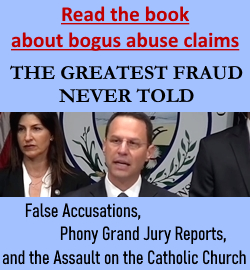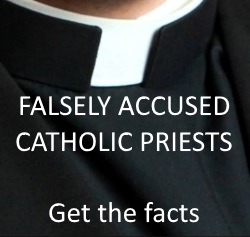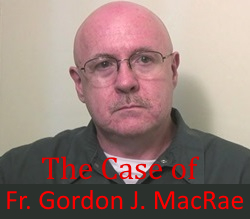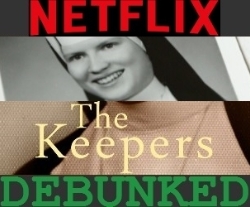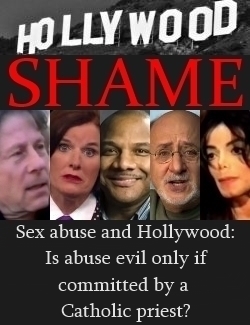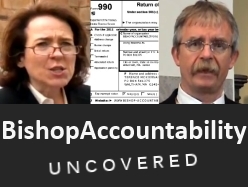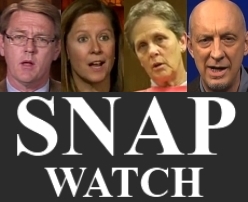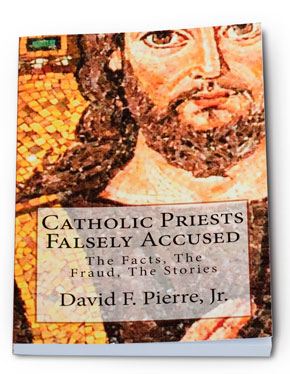Here are two recent news articles:
1. "Abuse victim wants to help others," by Kim Norvell, St. Joseph News-Press (6/24/11)
2. "Ex-priest at El Paso's Sacred Heart Catholic Church accused of molestation," by Diana Washington Valdez, El Paso Times (6/28/11)
In both stories:
- Someone has accused a Catholic priest of childhood sexual abuse.
- The priest is deceased. (In the first story, we don't learn the priest is dead until the fifth paragraph. In the second story: the fourth paragraph!)
- The reporter identifies the priest by name, but the accuser remains completely anonymous.
- The priest never had any other accusations against him.
First, let's be very clear: We must continue to demand justice and compassion for victims of clergy abuse. This is not optional. The harm to victims has been immeasurable. Nothing justifies the wretched evil of abuse of a minor.
However, it hardly seems just or compassionate to publicly accuse and identify a previously unblemished priest who is no longer alive to defend himself. And if you look at the title of the first article, it does not even say "alleged abuse victim"; so the article implies that the priest is most certainly guilty. The accuser in the first article is also 60 years old, and he has claimed that the abuse took place over 45 years ago.
The fact that the accusers sound "convincing" and "sincere" is not alone an honorable reason to throw fairness out the window. It is no secret that attorneys, psychologists, and victim advocates often coach individuals on how to speak to the media for maximum effectiveness. In both cases/stories, the accusers have retained lawyers.
One would like to think that there used to be a day when an honest journalist would never publicize such a serious accusation against a previously unblemished person who is deceased, unless strong evidence compelled the writer to do so. The uncorroborated testimony of a single individual hardly reaches that level of criterion.
In response to the first article, I sent an e-mail to the writer (Kim Norvell, St. Joseph News-Press. I also copied the message to a couple of the paper's editors.) I outlined some of the thoughts above. I also added a few more points:
Have you considered that the deceased pastor may have brothers, sisters, nieces, and/or nephews who are alive? Did you consider the effect of this news on them?
Are you aware that approximately 43% of all Catholic priests who were accused of abuse in 2010 were deceased? (See the latest annual USCCB/CARA report.)
Are you aware of the November 2010 declaration to the Los Angeles County Superior Court (by attorney Donald H. Steier) which included the alarming statement that as many as ONE HALF of abuse accusations against Catholic clergy may be "entirely false" or "greatly exaggerated"?
Would you ever write an article about a 60-year-old who claimed abuse by a deceased and previously unblemished teacher? How about a rabbi? Or a doctor? Or a social worker? Why or why not?
I sent the e-mail nearly two weeks ago, and I still have not received a reply.
Where is the fairness? Where is the justice?
[POSTSCRIPT: When the Associated Press published the case of the man in Texas suing the Church (story #2 above), the AP actually reported, "The priest is not being sued because he could not be located." The priest is deceased! Indeed, the priest is difficult to locate! Good ... grief ...]
